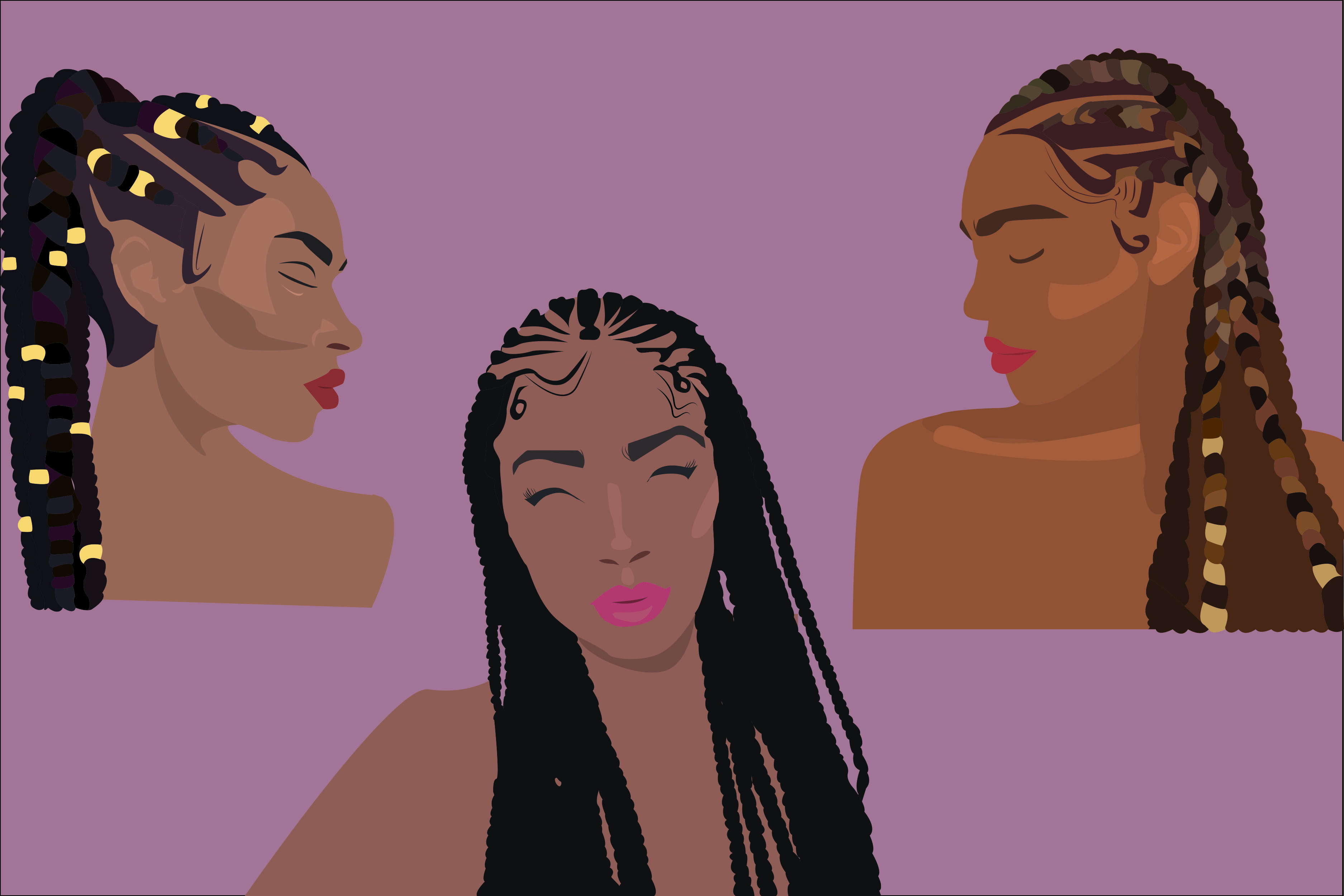Since the tragic and cold-blooded murder of Minneapolis resident George Floyd on Monday 25th of May, there has been mass protest all over the UK and America in the name of the Black Lives Matter movement.
The inexcusable actions of Police officer Derek Chauvin have only highlighted the racism and bigotry that still engulfs America, with many other countries looking inside their own cultures and questioning their attitude.
Here in the UK, there is still a tremendous amount of work to be done with regard to combatting racism, and the privilege held by white people is far too frequently overlooked.
This tragic event has caused us all to look inside of ourselves and question if we are doing enough to push this movement forward, as simply ‘not being racist’ is just not enough.
The things that tend to slip under the radar are the acts of micro-aggression that we don’t always realise we are doing, but must be addressed. One of these is the tendency to appropriate black culture.
Just like fashion, hair and beauty often have extensive historical and contextual meaning. Styles such as cornrows and dreadlocks have deep roots within black identity, with cornrows taking their very name from notions of agriculture and labour.
During the 60’s and 70’s the Natural Hair Movement was born, a movement that aimed to encourage men and women of African descent to embrace their natural hair and stop using the harsh chemicals and relaxers that they felt extreme pressure to use in order to fit into a European beauty standard.
Women and girls of colour have long faced extreme scrutiny, extending hundreds of years, that perceives their bodies, hair and features as abnormal and unacceptable with comparison to the Western beauty ideal. As a result they have tried to mask their natural beauty in an effort to fit in with the ‘accepted’ beauty standard.
Today, black people all over the world combine their rich African roots and own personal identity to style their hair in ways that celebrates the beauty of their natural hair, whether that be embracing their natural hair or through traditional styles such as cornrows, locs, twists, Fulani braids and other styles.
It must be recognised that a huge proportion of black people will still feel the weight of Western pressure to fit into certain beauty standards and are forced to reject their natural features as a result of this. It is this that makes cultural appropriation all the more frustrating.
Having faced these horrific prejudices at the hands of white people, it is then incredibly frustrating and disheartening to see them so frequently appropriating black culture themselves.
In an article written by Michelle Monari, published in North Texas Daily, she stated:
“What infuriates me the most is how black women are ridiculed and tormented for representing aspects of their culture through their hair, while non-black women are praised by the media for just simply copying those styles. It is extremely dehumanizing and unfair, and a reflection of the racism that still runs deep in society.”
Michelle Monari
A number of influencers and celebrities have been called out for culturally appropriating black hairstyles and diminishing the rich heritage that comes with them as a result. The Kardashian’s have been known to do this a number of times, with both Kim and Kylie receiving backlash for appropriating black culture through their choice of hairstyle, and yet continuing to do it.

Credit: Instagram @KimKardashian
In 2017, high fashion designer Marc Jacobs was put under scrutiny for his cyber-goth inspired runway show which saw a cast of predominantly white female models wear candyfloss-coloured dreadlocks. In a show of 52 looks, less than 10 models were women of colour.
Jacobs’ response to the criticism he received was ‘I don’t see colour or race – I see people. Funny how you don’t criticise women of colour for straightening their hair’.
This incredibly problematic response saw many people argue that Jacobs was dismissive of racism completely. It certainly would not be the first time that a high profile designer has appropriated black culture.
White people need to be far more mindful and actively aware of their privilege. Black hair has deep-rooted historical and cultural context, and is so closely entwined with black identity, that for white people to appropriate this is more damaging than they might realise.
How can it be deemed acceptable for a cast of white models to wear the range of hairstyles that black women have been wearing for hundreds of years, and it is at that point that they become acceptable? Appropriation is about the power dynamic between races. It is unacceptable for the people who hold all of the privilege to believe that they can legitimize traditional customs and heritage that they have so long oppressed and marginalized black people for.
Hairstyles and cultural appropriation are part of the many micro-aggressions that need to be urgently recognised and addressed by white people. We need to learn the importance of respecting, understanding and educating ourselves on black culture and heritage. Although there are too many examples of white people appropriating black culture, the more we educate ourselves, the less chance there is of us ever doing this, and the less problematic we can make ourselves.
By Neave Meikle
Note from Editor: You may be wondering why this article is being posted almost two months after George Floyd’s death. Why wasn’t it be published at the height of the protests?
It’s because cultural appropriation and the Black Lives Matter movement should be talked about at all times, not just when it’s trending.

